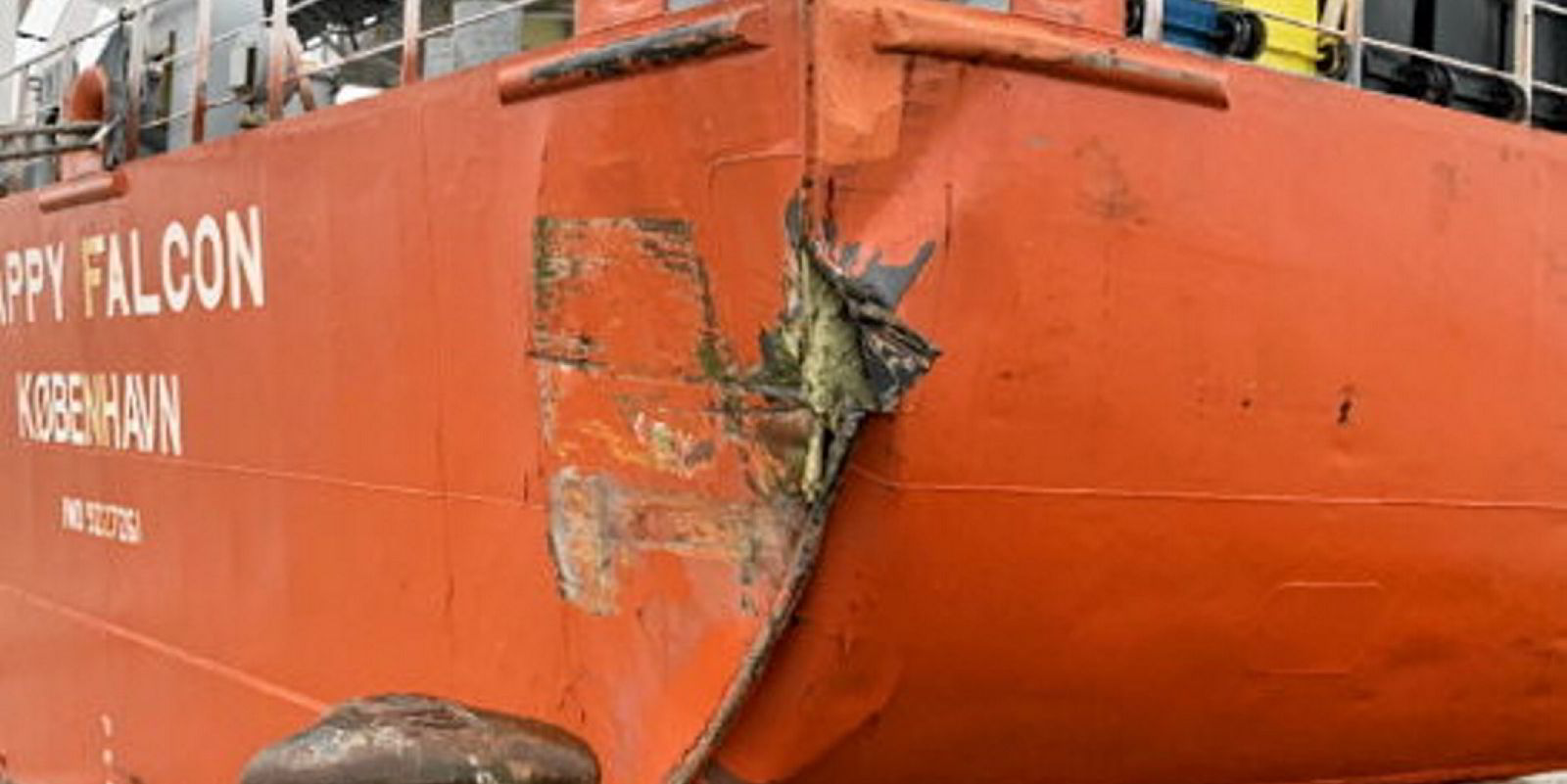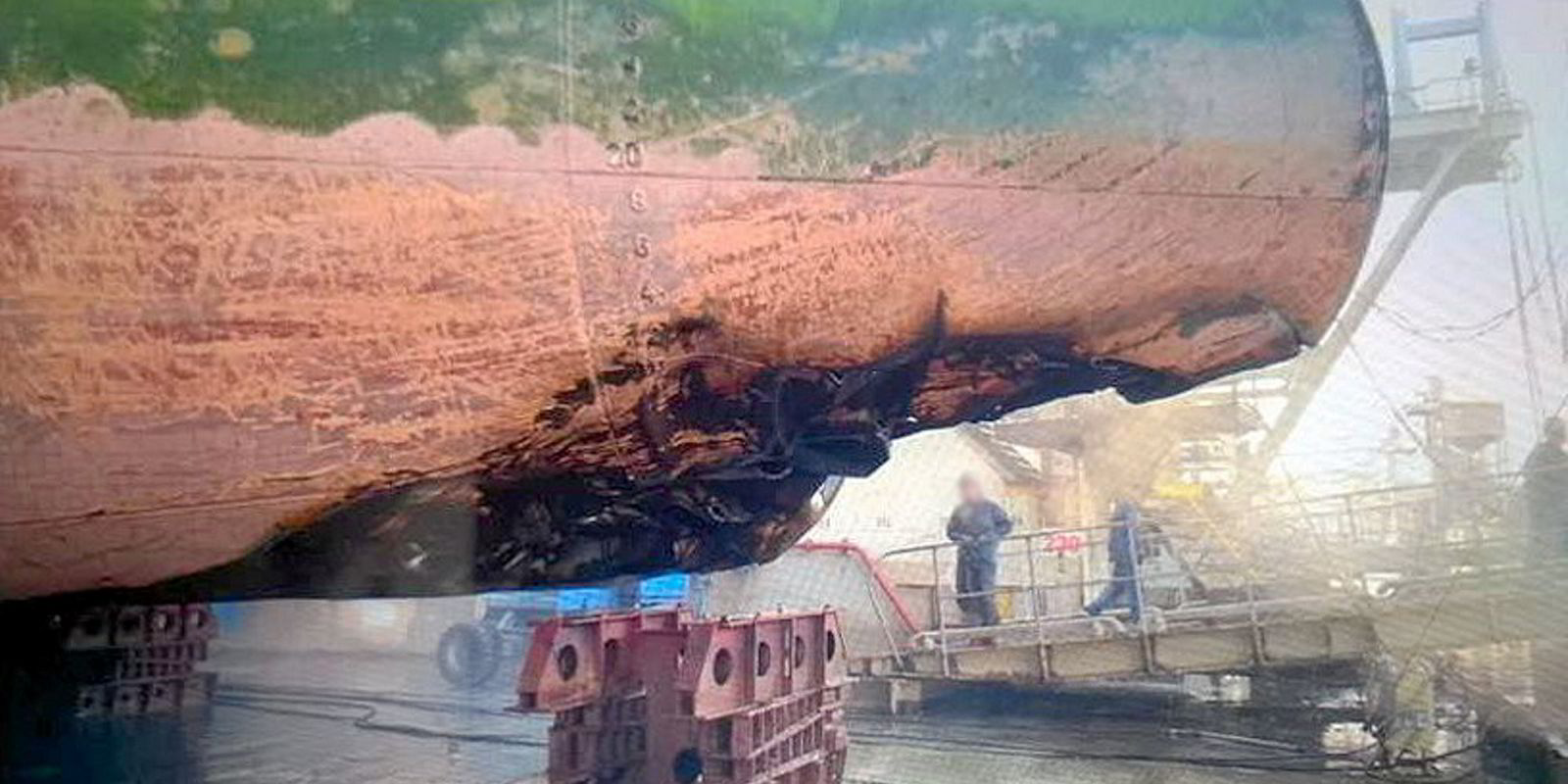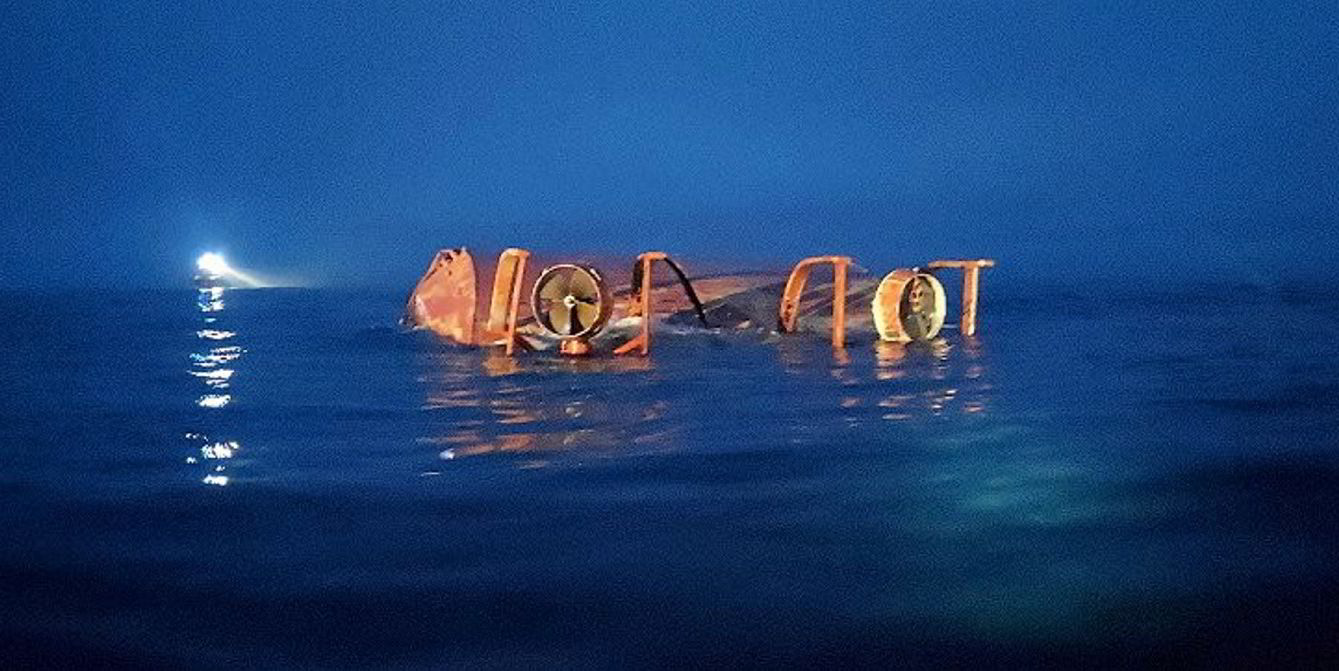A series of errors have been identified by UK accident investigators as they revealed a previously unreported collision between a general cargo ship and an LPG carrier off Denmark.
The 4,800-dwt Scot Explorer (built 2019) was in collision with Navigator Gas’ 3,771-cbm gas carrier Happy Falcon (built 2002) 12 nautical miles north-west of Thyboron on the morning of 24 October, the Marine Accident Investigation Branch (MAIB) said.
Both vessels had left ports in Sweden the previous day and were bound for the UK and the Netherlands, respectively.
The Happy Falcon had overtaken the Scot Explorer overnight along the northern tip of Denmark and both vessels proceeded south-westerly along the Danish coast.
The UK-flag Scot Explorer’s master was alone on the bridge when the LPG ship began to slow down due to a technical fault in the main engine, MAIB said.
The gas vessel came to a stop and started to drift while repairs were being made.
But the required “vessel not under command” signals were not displayed on the AIS and a maritime safety information message was not broadcast, the report found.
Over the next 20 minutes, the Scot Explorer’s master was undertaking other duties on the bridge and was not monitoring nearby traffic, MAIB added.
A crew member who had been working on deck ran to the bridge and alerted the captain to the developing close-quarters situation.
By then, the Happy Falcon was about 200 metres away.
The master immediately used the autopilot to turn to starboard before switching to hand steering to increase the rudder angle, but the turn was not enough to avoid the collision 10 seconds later.
Neither lookout effective
The Scot Explorer’s port side struck the Happy Falcon’s starboard quarter, resulting in hull damage to both vessels above the waterline.
The MAIB’s preliminary assessment found that the officer of the watch on neither vessel was keeping an effective lookout.
Although the Happy Falcon was unable to manoeuvre as required by the collision regulations or keep out of the way of another vessel, its crew had not taken the appropriate actions to inform other ships of the situation, MAIB said.
The Scot Explorer’s master was distracted by other duties that interfered with keeping a safe navigational watch, the agency found.
The ship’s electronic navigation aids were not being monitored, nor were they optimally set or used in accordance with best practices.
“The absence of a dedicated lookout on Scot Explorer’s bridge meant there was no one immediately available on the bridge to assist the master as the situation developed by activating hand steering and taking the helm,” MAIB said.
“The initial use of the autopilot by Scot Explorer’s master instead of using hand steering to conduct the emergency manoeuvre resulted in a smaller rudder angle being used and, therefore, a slower rate of turn to avoid the collision,” the agency added.
No alarm sounded
The Scot Explorer’s general emergency alarm was not sounded to alert the crew about the collision or activate the ship’s emergency response.
The MAIB has written to Scotline’s in-house manager Intrada Ships Management about the standards of watchkeeping on the vessel.
Intrada has carried out an internal investigation and issued a safety bulletin to its fleet.
Navigator Gas Ship Management in Denmark has also carried out its own probe.
The company has provided scheduled bridge resource management refresher courses for the master and officer of the watch.
Navigator has also updated its safety management system and bridge emergency checklists to include engine breakdown and actions to be taken when the vessel is unable to manoeuvre.
The UK’s Maritime and Coastguard Agency is pursuing legal action against Intrada over a separate fatal collision in 2021.
The manager faces a charge of failing to operate a vessel safely after the 4,800-dwt UK-flagged general cargo ship Scot Carrier (built 2018) clashed with 500-dwt Danish split hopper barge Karin Hoj (built 1997) in the Baltic Sea off Sweden.
Both seafarers from the Danish ship died as it capsized in the early hours of 13 December.





